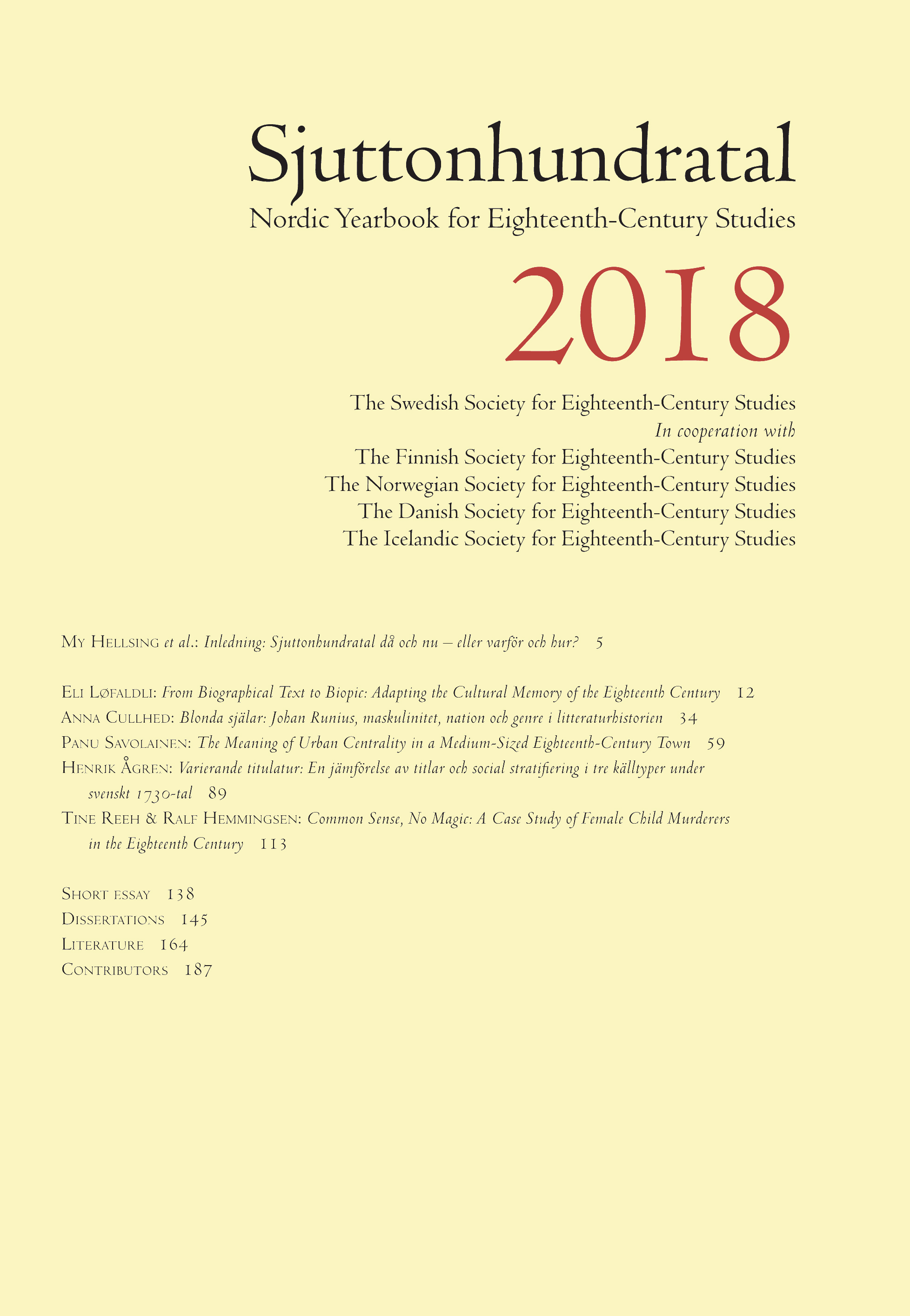Common Sense, No Magic: A Case Study of Female Child Murderers in the Eighteenth Century
DOI:
https://doi.org/10.7557/4.4485Keywords:
Religion and psychiatry, suicide murder, mental disorders, court procedures, female child murderers, mental illness in eighteenth century, Hellmuth von Weber, pietism, Lutheran soteriologyAbstract
This article presents the results of a psychiatric and church-historical analysis of the substantial court records from 21 cases of female child murderers in eighteenth-century Denmark-Norway. We investigated, first, the appearance of mental aspects in the cases and if they allowed for a retrospective clinical hypothesis regarding the mental state of the offender. Second, traces of theological or religious elements and third, trends or developments in the cases from 1697–1758 were considered. After an introduction to the legal framework, we present six cases with mental aspects, comprising existential death wish, depression, acute stress disorder, polymorphic psychosis, psychotic state and personality disorder to illustrate findings regarding the murderers’ mental states. Religious elements and developments proved hard to find. The results of the analysis point to social and mental rather than religious causative factors for the murders. To some degree they resemble present-day “suicide by cop” or homicides committed by mentally ill persons. This calls for a modification of the theory of so-called suicide murders and a religious or particularly Lutheran component in this regard. The in-depth analysis indicates that court procedures were perfectly commonsense and included mental aspects but seldom religion – and no magic.Metrics
Metrics Loading ...









